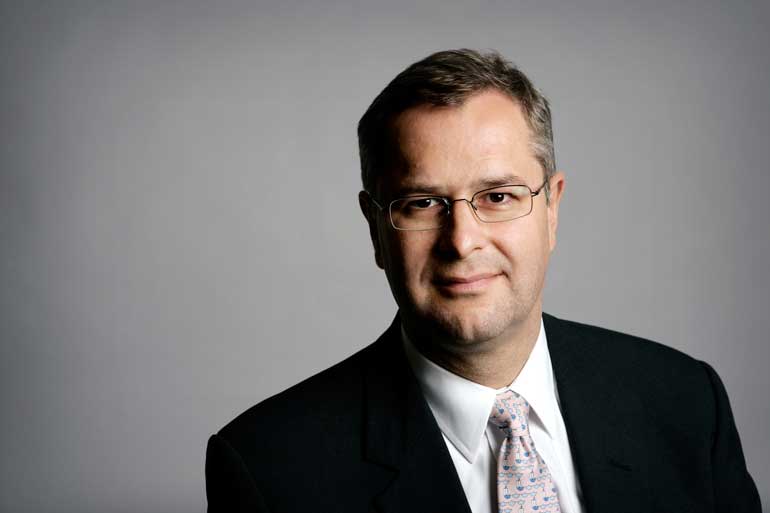Wednesday Feb 25, 2026
Wednesday Feb 25, 2026
Monday, 24 August 2015 00:00 - - {{hitsCtrl.values.hits}}
 Maersk Line Chief Executive Soren Skou
Maersk Line Chief Executive Soren Skou
COPENHAGEN (Reuters): Maersk Line and fellow big shipping groups are best placed to cope with the choppy waters of the container market and loss-making smaller companies could be swallowed up, the head of Maersk Line said on Friday.
A toxic mix of overcapacity, weak demand and aggressive pricing is depressing profits in the industry. Growth was once easily outpacing economic expansion but those heady days are a thing of the past, said Maersk Line Chief Executive Soren Skou.
“Before the financial crisis the global demand for seaborne container transportation increased 9-10% per year but from here we expect a growth rate of between three and five% annually the next decade,” he told Reuters in an interview in his office overlooking Copenhagen harbour.
Roughly 90% of the world’s goods are carried by sea, with over 70% in containers.
Maersk Line, part of Denmark’s A.P. Moller-Maersk is benefiting from its size as the biggest player with a share of around 15% of the market.
“The last three years have shown a clear picture that scale matters in this industry,” Skou said. “Major players like us and French-based CMA CGM are clearly delivering higher returns than the rest.”
Flexing its muscles, Maersk Line has taken delivery of the last five of 20 huge container vessels which each can carry more than 18,000 twenty foot containers.
Those vessels have helped to reduce by around 10% the costs of transporting containers holding everything from new sports shoes to the latest computers.
Maersk Line surprised the market on Thursday when it reported a profit of $ 507 million for the second quarter despite record low spot rates for container traffic on the world’s busiest route between Asia and northern Europe.
It wants to exploit its cost advantage to protect and potentially expand its lead in the market.
Skou points to a large and vulnerable group of container shipping companies with a market share of only three to five percent, few of whom are making money. There have been some signs of consolidation in the fragmented industry but more is needed, according to Skou.
Earlier this week sources told Reuters that Chinese China Ocean Shipping (Group) Company (COSCO) and China Shipping Group were in talks over a possible merger.
In July sources said Singapore state investor Temasek Holdings has put shipping company Neptune Orient Lines Ltd up for sale.
“We are of the opinion that a consolidation would be good for the industry,” Skou said. However, he became coyer when asked if Maersk Line wants to buy container shipping activities from Temasek.
“Our strategy is to focus on organic growth but we look into what’s coming up,” he said.